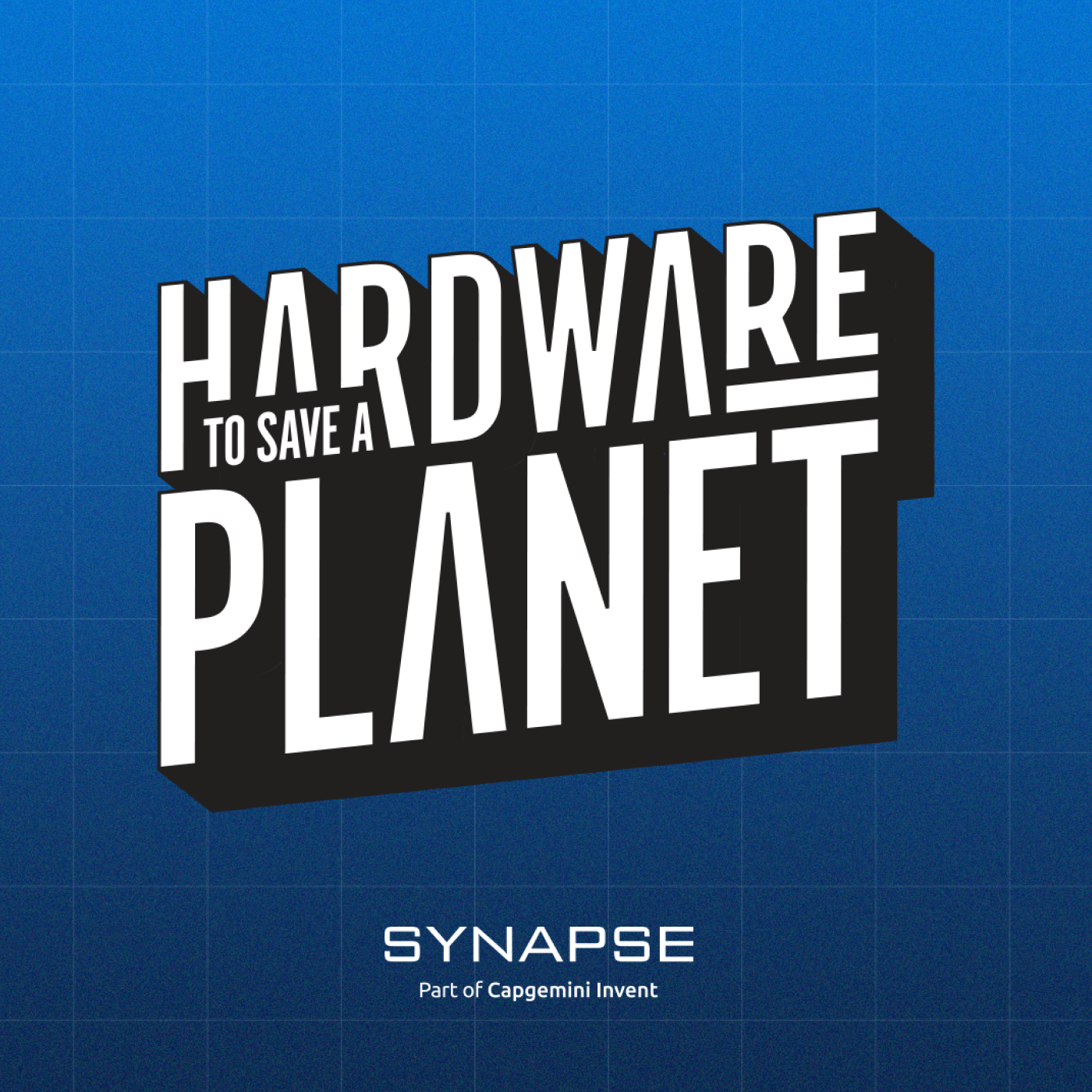Circular Sanitation: How Human Waste Could Replace 25% of Global Fertiliser with Taylor Zehren
November 20, 2025

Recycling human waste rarely makes the sustainability spotlight, yet our current recycling system flushes away 32 billion gallons of fresh water and the nutrients that could replace a quarter of global fertiliser demand.
In this episode of Hardware to Save a Planet, host Dylan Garrett speaks with Taylor Zehren, cofounder and CEO of Wasted, about how rethinking human waste can unlock a powerful circular sanitation economy. Zehren explains how urine-diversion technology turns porta-potties into nutrient-recovery hubs, reducing water waste, cutting emissions, and replacing a significant share of global fertiliser demand. She highlights why separating waste at the source outperforms traditional wastewater treatment, how Wasted’s model transforms disposal costs into revenue, and why cultural shifts, starting with educating children, are essential for scaling sustainable, nature-inspired sanitation systems across homes, venues, and communities.
Recycling human waste rarely makes the sustainability spotlight, yet our current recycling system flushes away 32 billion gallons of fresh water and the nutrients that could replace a quarter of global fertiliser demand.
In this episode of Hardware to Save a Planet, host Dylan Garrett speaks with Taylor Zehren, co-founder and CEO of Wasted, about how rethinking human waste can unlock a powerful circular sanitation economy. Zehren explains how urine-diversion technology turns porta-potties into nutrient-recovery hubs, reducing water waste, cutting emissions, and replacing a significant share of global fertilizer demand. She highlights why separating waste at the source outperforms traditional wastewater treatment, how Wasted’s model transforms disposal costs into revenue, and why cultural shifts, starting with educating children, are essential for scaling sustainable, nature-inspired sanitation systems across homes, venues, and communities.
What you will learn:
- Why urine diversion at the source outperforms end-of-pipe nutrient recovery
- How to leverage existing logistics infrastructure to scale nutrient collection
- The biomimicry principle behind separating waste streams
- How to design for adoption without requiring behavioral change
- Why circular business models create better unit economics than linear waste disposal
- The cultural and psychological power of making nutrient cycles visible
Taylor Zehren is the cofounder and CEO of Wasted, a circular sanitation company reimagining how we collect, treat, and repurpose human waste. With a background in biology and international development work through her Fulbright scholarship, Taylor founded the nonprofit Do Good Shit to deploy sustainable waste management systems in remote outdoor locations before scaling her impact through Wasted. She combines scientific rigor with biomimicry principles to tackle one of society's most overlooked climate challenges: transforming sanitation infrastructure into a nutrient recovery system.
Episode Resources:
- Taylor Zehren on LinkedIn
- Wasted Website
- Dylan Garrett on LinkedIn
- Synapse Podcast Website
- Synapse Website
- Hardware to Save a Planet Apple Podcasts
- Hardware to Save a Planet Spotify
Hardware to Save a Planet is handcrafted by our friends over at: fame.so
If you are interested in sponsoring Hardware to Save a Planet, please see our sponsorship offer here.
Previous guests include: Peter Reinhardt of Charm Industrial, Carlos Araque of Quaise, Noah McQueen of Heirloom, Areeb Malik of Glacier, Jeff Satwicz of Bigbelly, Abe Schneider of Natel Energy, Insiya Jafferjee of Shellworks, Paul Gross of Remora, Erika Boeing of Accelerate Wind and Daniel Betts of Blue Frontier.
Check out our three most downloaded episodes:
If you are interested in sponsoring Hardware to Save a Planet, please see our sponsorship offer here.
Previous guests include: Peter Reinhardt of Charm Industrial, Carlos Araque of Quaise, Noah McQueen of Heirloom, Areeb Malik of Glacier, Jeff Satwicz of Bigbelly, Abe Schneider of Natel Energy, Insiya Jafferjee of Shellworks, Paul Gross of Remora, Erika Boeing of Accelerate Wind and Daniel Betts of Blue Frontier.
Check out our three most downloaded episodes:
- Going Big on Clean Energy with Small Fusion Reactors with Robin Langtry, Co-Founder and CEO of Avalanche Energy
- The Role of Energy Storage Systems in Combating Climate Change with Mike Wietecki of Powin and John Thomas of ESS
- Marine Electrification to Reduce Costs and Environmental Damage: A Conversation with Marcelino Alvarez, CEO of Photon Marine
If you have an interesting hardware solution to the climate crisis and would like the opportunity to share this with our audience, please complete this Guest Application form: https://fame.so/syn